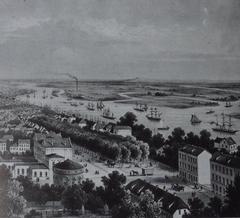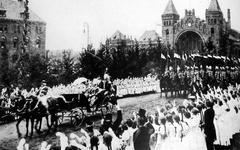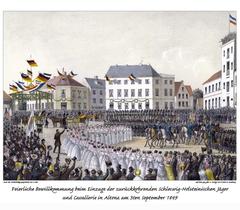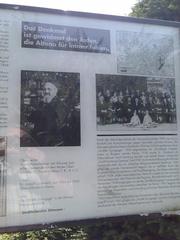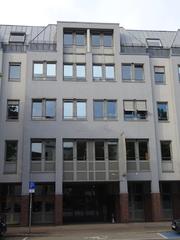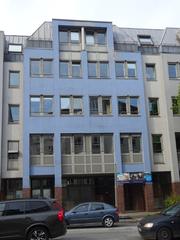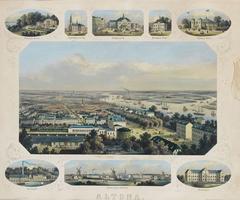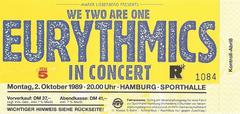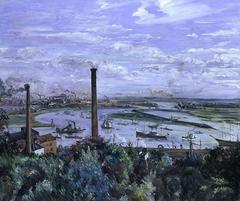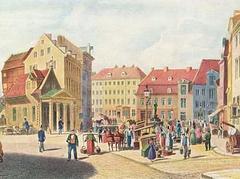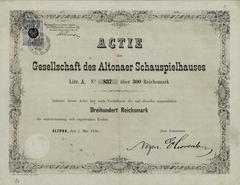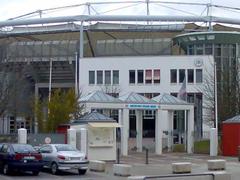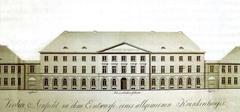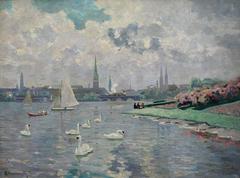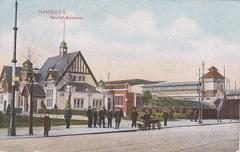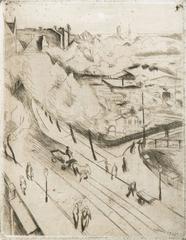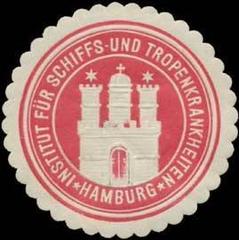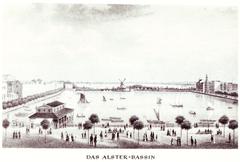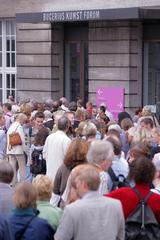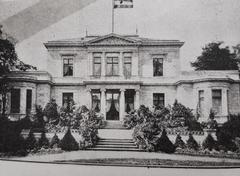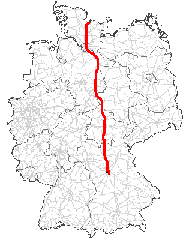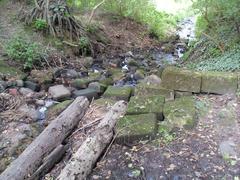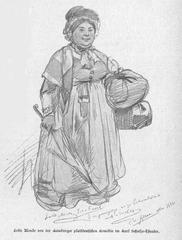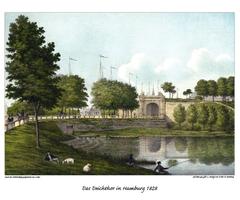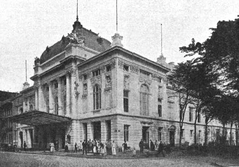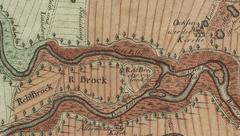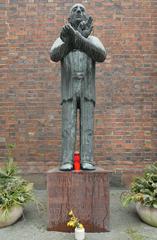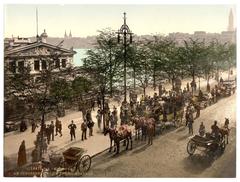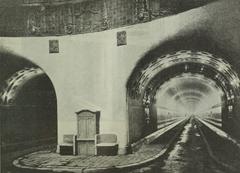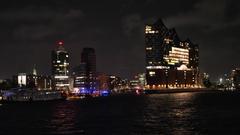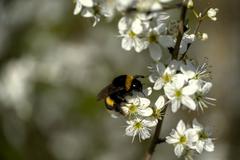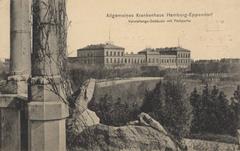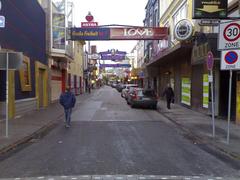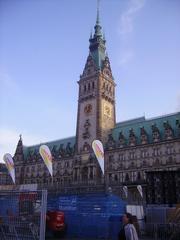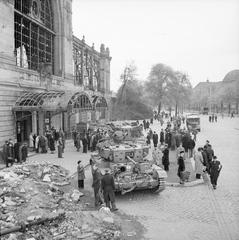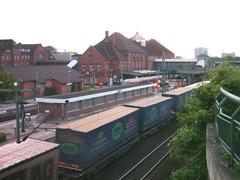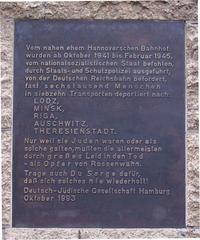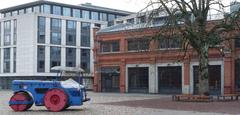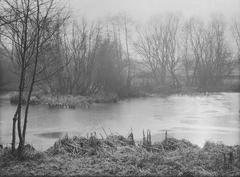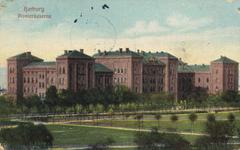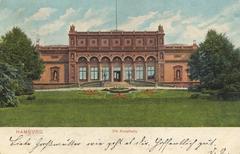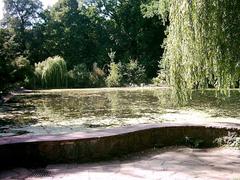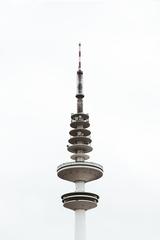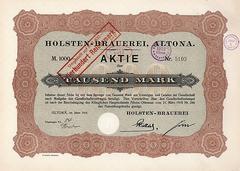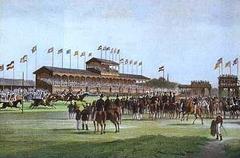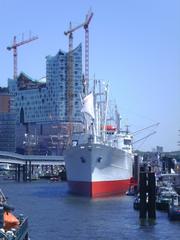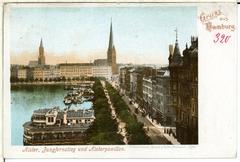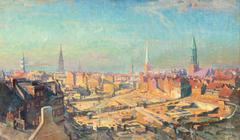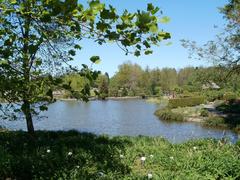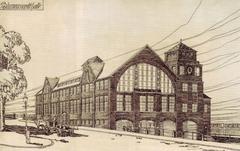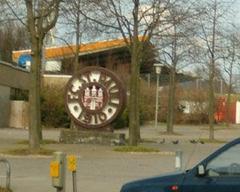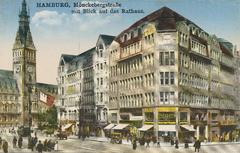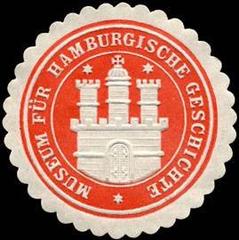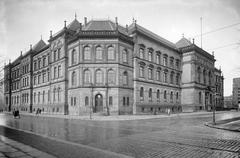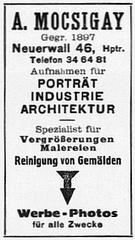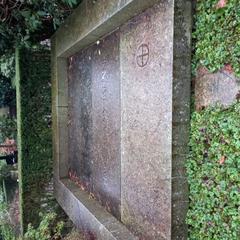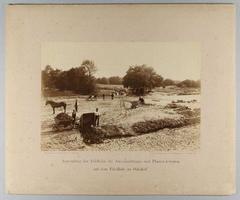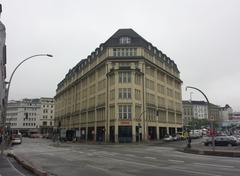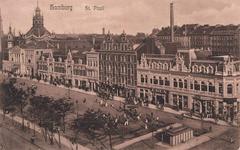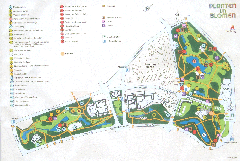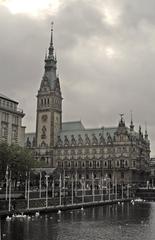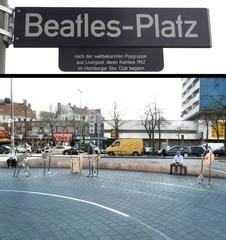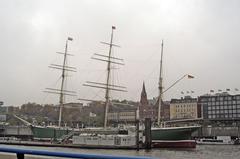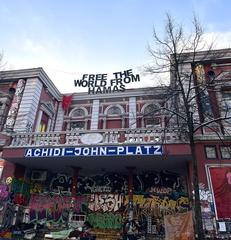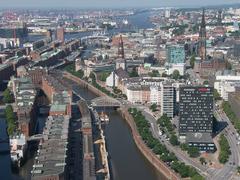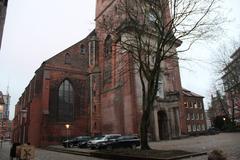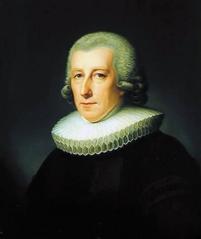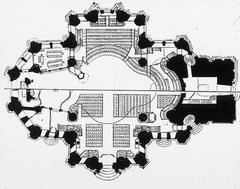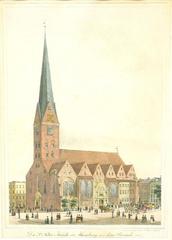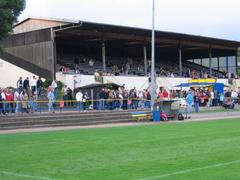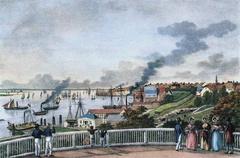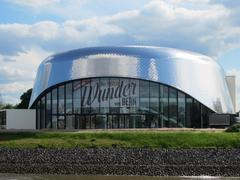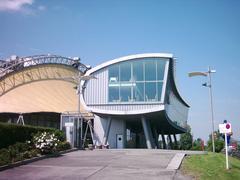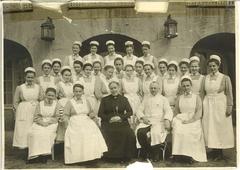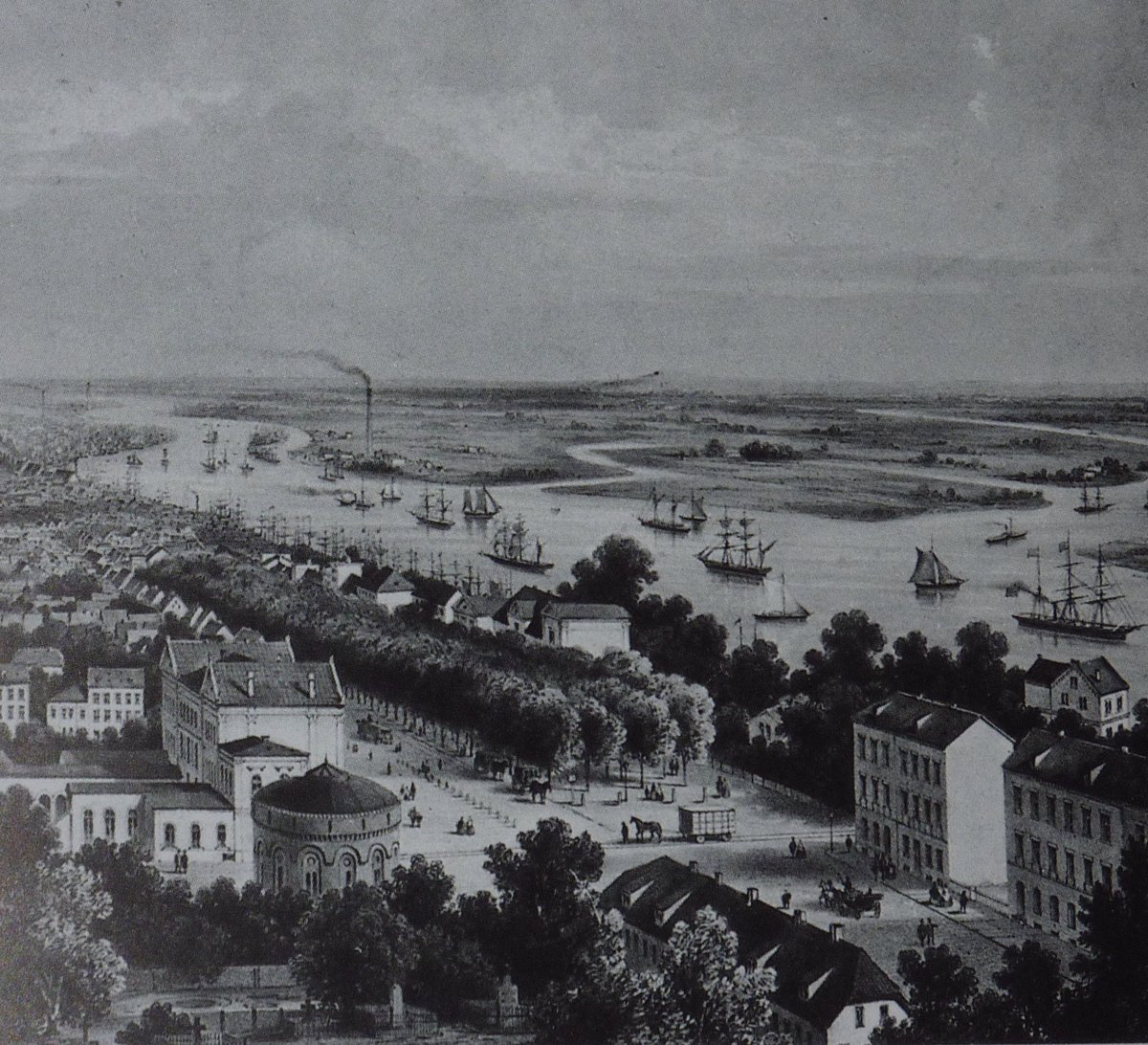
Altona-Altstadt Hamburg: Complete Guide to Visiting Hours, Tickets, and Historical Sites
Date: 14/06/2025
Introduction: Discover Altona-Altstadt’s Historical Significance
Altona-Altstadt, situated on Hamburg’s northern Elbe riverbank, is a district rich in history and culture. Founded in 1537 as a fishing settlement, Altona-Altstadt flourished due to its riverside location, evolving through periods of Danish, Prussian, and German rule. The district has endured destruction and renewal—from the 1713 Swedish invasion to post-World War II reconstruction—emerging as a multicultural hub with vibrant festivals, preserved architecture, and a thriving cultural scene (24hamburg.de; hamburg.de).
Visitors can explore historical landmarks such as the Altonaer Rathaus and Altonaer Balkon, experience the famous Altonaer Fischmarkt, and join in the district’s renowned altonale festival. Altona-Altstadt’s accessible layout, excellent public transport, and diverse attractions make it ideal for families, history buffs, and culture seekers alike (hamburg-travel.com; Citizen Femme).
This guide offers a detailed look into Altona-Altstadt’s history, must-see sights, festivals, visitor logistics, and top travel tips—equipping you for an enriching Hamburg adventure.
Table of Contents
- Historical Overview
- Key Attractions and Landmarks
- Festivals and Cultural Events
- Visitor Information
- FAQs
- Summary & Visit Recommendations
- References
Historical Overview
From Fishing Village to Urban Powerhouse
- Early Origins: First recorded in 1537 as a fishing settlement under the Count of Holstein-Pinneberg, Altona’s strategic river position fostered trade and growth. Its name, “Altona,” is believed to stem from a tavern considered “all to nah” (too close) to Hamburg, reflecting early rivalry (24hamburg.de).
- Danish Period: In 1640, Altona came under Danish rule. By 1664, King Frederik III granted it city rights, attracting diverse populations and establishing a tolerant, cosmopolitan community (hamburgausflug.de).
- Conflict and Recovery: The city endured devastation in the 1713 Swedish attack but rebuilt quickly, thriving through the 18th and 19th centuries (en.wikipedia.org).
- Industrial Boom: The arrival of the Hamburg-Altona–Kiel railway in 1844 propelled industrialization, making Altona-Altstadt one of Europe’s densest quarters by the late 1800s (24hamburg.de).
- Prussian & German Eras: Integrated into Prussia after the Second Schleswig War (1864), Altona retained its identity into the German Empire (en.wikipedia.org).
- Integration with Hamburg: The Greater Hamburg Act of 1937 incorporated Altona, preserving its historic core (en.wikipedia.org).
- WWII & Reconstruction: Air raids in WWII wrought devastation, prompting large-scale reconstruction and modern urban development (hamburg.de).
- Modern Renewal: Pedestrian shopping streets, innovative architecture, and the opening of central city amenities have revitalized the district (hamburg.de).
- Cultural Heritage: Today, Altona-Altstadt is celebrated for its diversity, vibrant festivals, and preserved historic sites (city-wohnen.de).
Key Attractions and Landmarks
Altonaer Balkon
- What to Expect: A panoramic park perched 27 meters above the Elbe, offering sweeping views of the river and harbor.
- Hours: Open daily, 6:00 AM–10:00 PM; free entry.
- Access: Wheelchair accessible, ideal for photos, picnics, and sunset watching (Hamburg Tourism).
Altona Fischmarkt
- Experience: Hamburg’s iconic Sunday market since 1703, renowned for its lively atmosphere, fresh seafood, flowers, and the historic Fischauktionshalle with live music.
- Hours: Sundays, 5:00–9:30 AM; free admission (Wikiwand).
- Accessibility: Wheelchair-friendly, guided tours available.
Museumshafen Övelgönne
- Highlights: Open-air museum with historic ships, tugboats, and maritime exhibits.
- Entry: Free access year-round; special events during the annual harbor festival (Hamburg Tourism).
Stage Theater Neue Flora
- Details: Landmark musical theater with international shows and restored 1920s facade.
- Hours: Tues–Sun, ticketed entry; advance booking recommended (Hamburg Travel).
- Accessibility: Wheelchair seating, hearing assistance.
Ottensen Quarter
- Vibe: Trendy, creative area with boutiques, independent shops, and diverse gastronomy (Hamburg Tourism).
- Noteworthy Shops: ’s Fachl (handmade goods), 8beaufort.Hamburg (recycled-sail sneakers), Aal together (crafts).
- Hours: Most shops open Mon–Sat, 10:00 AM–6:00 PM.
Alma-Wartenberg-Platz
- Role: Central square hosting weekly markets and open-air events (Hamburg Tourism).
FABRIK
- Function: Cultural center in a former factory, offering concerts, workshops, and exhibitions (Hamburg Travel).
- Access: Fully accessible, tickets available online and onsite.
AHOI Strandkiosk & Elbstrand
- Relaxation: Organic cafe on the Elbe beach, open daily (10:00 AM–8:00 PM summer; reduced winter hours).
- Activities: Walking, sunbathing, ship-spotting (Hamburg Tourism).
Architectural Heritage
- Character: A mix of brick warehouses, former factories, and lively cobblestone streets showcase Altona-Altstadt’s working-class roots and modern transformation (Hamburg Tourism).
Jewish Heritage
- Sites: Historic cemeteries and commemorative plaques reflect the district’s significant Jewish legacy (Wikiwand).
Festivals and Cultural Events
altonale: The Signature Festival
- Overview: Northern Germany’s largest multicultural festival, held June 27–July 6, 2025, with music, theater, art, dance, literature, and street performances (hamburg.de).
- Key Features:
- STAMP Festival: International street arts finale, July 4–6.
- altonale Flohmarkt: Giant flea market, July 5–6.
- Kunstmarkt: Art market, July 5–6.
- Infomeile Buntes Altona: Cultural info mile, June 28–29.
- Theme: “Resonanz” (Resonance), highlighting art’s societal impact.
- Tickets: Most events are “pay what you want”; some require tickets (hamburg.de).
Other Major Festivals
- International Short Film Festival Hamburg (IKFF): Early June, showcases 300+ films, various venues. Tickets: €8–€15 (Hamburg Travel).
- MSC Yellow Festival: June 14, 2025, maritime celebration—free public event.
- 48h Wilhelmsburg Music Festival: Collaborative concerts, free/€10–€25 (Hamburg.de).
- Reeperbahn Festival: Sept 17–20, 2025, Europe’s largest club festival; day passes from €30.
- Stadtpark Open Air: May–September, live music series; ticket prices vary.
- Filmfest Hamburg: Autumn, international films; tickets €10–€18.
Ongoing Cultural Life
- Zeise Kinos: Independent cinema in a converted factory.
- Local Cafés & Bakeries: Highlights include Torrefaktum Roastery and traditional German bakeries (Citizen Femme).
- Street Art & Public Spaces: Murals, open-air performances, and the scenic Altona Balcony.
Visitor Information
Opening Hours & Tickets
- Outdoor Attractions: Generally free and open daily.
- Museums/Theatres: Check individual websites for hours & ticketing.
- Festivals: Many events are free or “pay what you want”; ticketed events are clearly marked.
Guided Tours
- Options: Walking tours, audio guides, and mobile apps are available for self-guided exploration.
Accessibility
- Transport: Hamburg-Altona station connects S-Bahn, regional, and long-distance trains.
- District: Most sites are walkable and accessible; venues provide ramps and adapted facilities.
Getting Around
- Public Transport: S-Bahn lines, buses, and ferries provide easy access.
- On Foot/Bike: Pedestrian-friendly streets and bike rental options.
Recommended Photographic Spots
- Altonaer Balkon (panoramic harbor and sunset views)
- Övelgönne Harbor and Beach
- Ottensen’s street art and historic alleys
FAQs
Q: What are the best times to visit Altona-Altstadt?
A: Late June–early July (altonale festival) or Sundays (Fischmarkt) are ideal, but the district is vibrant year-round.
Q: Are attractions accessible for people with disabilities?
A: Yes, most public spaces and venues offer accessible facilities; check specific sites for details.
Q: Do I need tickets for the Fischmarkt or altonale events?
A: Fischmarkt is free; altonale events are mostly free or “pay what you want,” with select ticketed performances.
Q: How do I reach Altona-Altstadt from Hamburg city center?
A: S-Bahn lines S1, S3, and S31 go directly to Hamburg-Altona station.
Q: Are events family-friendly?
A: Yes, especially the altonale’s “junge altonale” programs, parks, and public spaces.
Summary & Visit Recommendations
Altona-Altstadt is a microcosm of Hamburg’s dynamic spirit—blending centuries-old history with a forward-looking cultural scene. From panoramic river views and legendary markets to vibrant festivals and inclusive urban life, it’s a destination offering something for every traveler. Accessible, walkable, and bursting with creativity, Altona-Altstadt is a must-see for anyone exploring Hamburg’s historical and cultural heart (hamburg.de; 24hamburg.de; hamburg-travel.com).
Pro Tip: For up-to-date event schedules, tickets, and guided tours, consult Hamburg Tourism and download the Audiala app for self-guided tours and local insights.
References
- Altona-Altstadt Historical Overview and Visitor Guide (24hamburg.de)
- Cultural and Social Landscape of Altona-Altstadt (Citizen Femme)
- Comprehensive Visit Guide Including Attractions and Events (Hamburg Tourism)
- Festivals and Annual Events in Altona-Altstadt (hamburg.de)
- Wikipedia: Altona-Altstadt (en.wikipedia.org)
For images, interactive maps, and more Hamburg travel resources, see official city websites and tourism apps.
